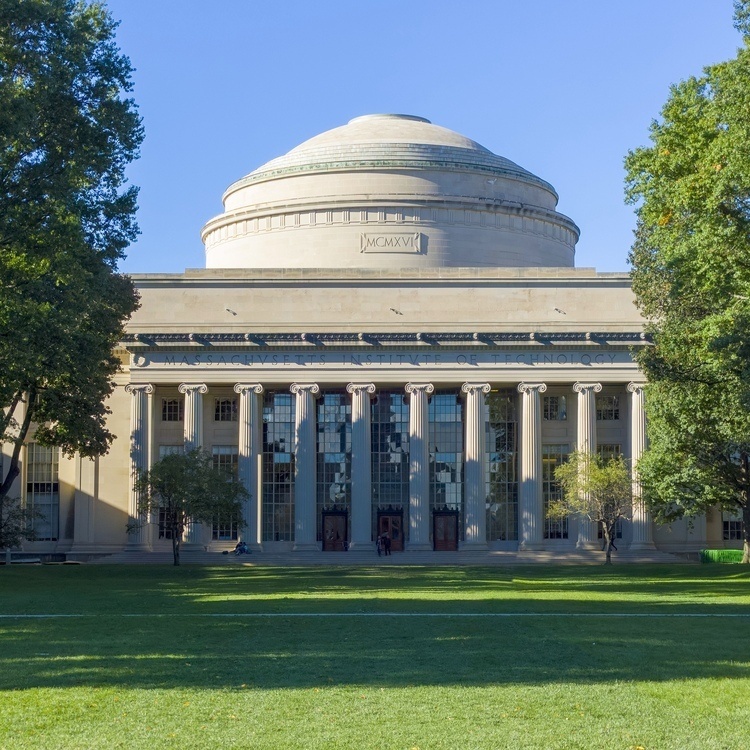
Rising Star Seminar Series with Caroline Nettekoven & Seetha Krishnan
Description
The Rising Stars Award in MIT's Department of Brain and Cognitive Sciences (BCS) is awarded to 3 postdoctoral scholars per year. Recipients are awarded based on their outstanding research accomplishments and their extraordinary potential to succeed as independent research faculty. This award also aims to enhance diversity and representation in the brain and cognitive sciences. Awardees receive a cash prize and are invited to present their research in the BCS Colloquium Series.
Title: A Mapmaker’s Guide to the Cerebellum
Speaker: Caroline Nettekoven
Abstract: The cerebellar field is undergoing a renaissance. Mounting evidence challenges our view of the cerebellum as a pure motor structure and implicates it in social, language and cognitive tasks. Nonetheless, the cerebellum’s contribution to these different processes remains poorly understood. A major challenge in cerebellar neuroimaging is that the cerebellum consists of a mosaic of functional regions, which are specialized for distinct functional roles. So far, we have not been able to reliably differentiate different subregions, as we lacked a comprehensive functional map. In this talk, I will present a novel functional atlas that integrates information from 7 large-scale datasets, outperforming existing atlases. The atlas allows for precision mapping in individuals: Integrating the probabilistic group atlas with an individual localizer scan results in a marked improvement in the prediction of individual boundaries. I will systematically compare resting-state and task-based localization methods and discuss implications for precision mapping in the cerebellum and across the whole brain.
Bio: Caroline Nettekoven is a postdoctoral research fellow at Western University in Canada. Her research combines multi-modal neuroimaging with machine learning and brain stimulation to study how neocortex and cerebellum interact to enable complex human behaviours. During her PhD at the University of Oxford, she showed plastic changes in cerebellar neurochemistry and connectivity during movement correction. During her postdoc at the University of Cambridge she developed new NLP tools for diagnosing schizophrenia, before moving to Canada to work on cerebellar atlassing. In 2025, she will return to the University of Oxford as a Wellcome Early Career Fellow to investigate the cerebellar role in social cognition using ultrasound stimulation.
Title: How internal states shape our memories of the external world.
Speaker: Seetha Krishnan
Abstract: Internal states play a critical role in the formation and retrieval of episodic memories. Rewards and punishment are significant influences on internal states. For instance, events that lead to rewards may result in an internal state of reward expectation when those events are experienced again, or events where predators are encountered may lead to a fearful internal state. Memories associated with these internal states are better remembered as they are essential for survival. The hippocampus is critical for the formation and retrieval of such episodic memories, with representations of space in the CA1 subregion thought to be a key component of these memories. However, at the cellular level, how internal states influence spatial memory encoding in the hippocampus is yet to be fully understood. We investigated the influence of reward expectation on hippocampal spatial representations while imaging from hippocampal neurons in mice traversing virtual reality environments. We found that when reward expectation is extinguished, hippocampal spatial representations of the environment become unreliable across trials and unstable across days at the single cell level, indicating that reward expectation is necessary for the reliable encoding of memories by the hippocampus. We also found that dopamine axons from the Ventral Tegmental Area (VTA) in CA1 exhibited a ramping-to-reward proximity signal that is dependent on reward expectation and inhibiting VTA dopamine neurons replicated the effects of reward expectation extinction on hippocampal neurons. Thus, we found a mechanism by which internal states can shape memory representations via neuromodulation.
Bio: Dr. Seetha Krishnan earned her Bachelor's degree in Electrical Engineering and her PhD in Neuroscience from the National University of Singapore, where she studied neural circuits involved in sensory processing in larval zebrafish. Currently, she is a Postdoctoral Fellow at the University of Chicago in Dr. Mark Sheffield’s lab. Her research explores the role of neuromodulation in memory formation via the hippocampus in both health and disease. She works with mice navigating virtual reality environments while using two-photon microscopy to image large populations of hippocampal neurons. Recently, Dr. Krishnan was awarded a NIDA K01 grant for five years to investigate how nicotine impacts neuromodulatory receptors in the hippocampus, leading to the formation of persistent drug-associated memories, a research direction she hopes to pursue in her independent laboratory.
Zoom: https://mit.zoom.us/j/98793241968
Followed by a reception with food and drink

